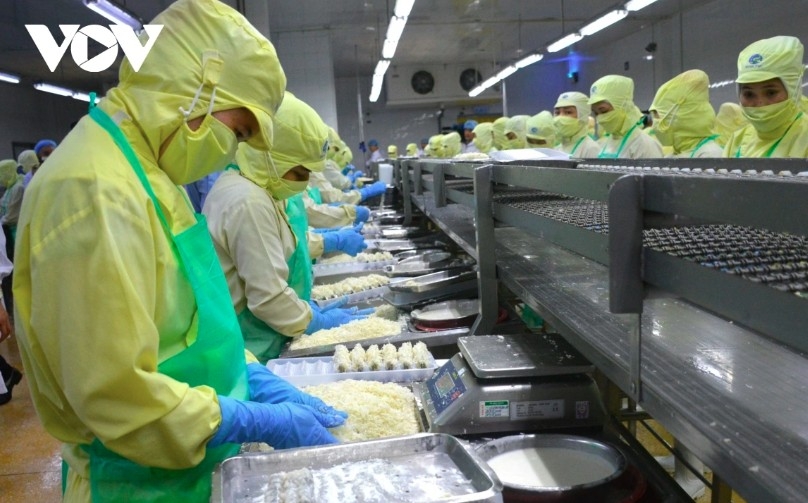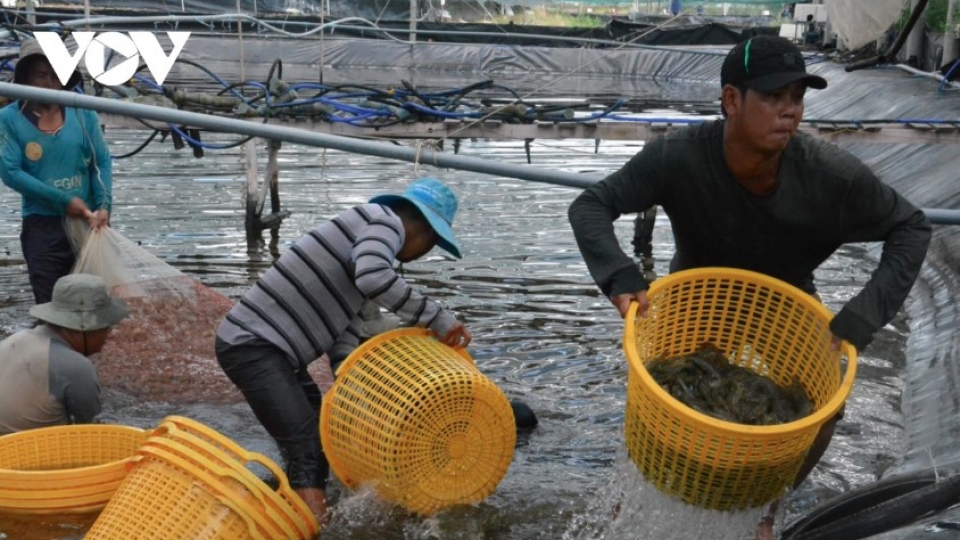China emerges as top buyer of Vietnamese shrimp in first half
VOV.VN - China (including Hong Kong) became the largest importer of Vietnamese shrimp in the first half of the year, with export turnover reaching nearly US$595 million, an 81% increase year-on-year, according to the Vietnam Association of Seafood Exporters and Producers (VASEP).
VASEP attributed this strong growth to a rebound in consumer demand and China's high appetite for Vietnamese lobster.
In total, Vietnam's shrimp exports during the six-month period topped US$2 billion, up 27% compared to the same period last year. Other key markets also recorded positive growth. Exports to Australia and Canada rose by 5% and 6%, respectively, while exports to Japan surged 19%. Japan remained Vietnam’s third-largest shrimp buyer, driven by stable demand and a strong preference for value-added products.
The Republic of Korea also posted solid growth, up 14%, thanks to consistent demand for well-processed shrimp. Exports to Taiwan (China) showed notable momentum, rising 27% and further strengthening Vietnam’s shrimp presence in East Asia.
In the European Union, shrimp exports increased by 16%, with Germany, Belgium, and France all seeing double-digit growth, supported by tariff preferences under the EU–Vietnam Free Trade Agreement (EVFTA).
By contrast, exports to the United States, once Vietnam’s top shrimp market, have shown signs of instability. While total exports to the US in the first half of the year still rose 13% to US$341 million, monthly trends were uneven. Exports in May soared 66% as companies rushed shipments ahead of new tariffs, but dropped sharply by 37% in June. As a result, shrimp shipments to the US are projected to slow in July, as many “tax avoidance” orders had already been fulfilled earlier than usual.
According to VASEP, amid ongoing global uncertainties, Vietnamese shrimp exporters must proactively adjust their strategies, while diversifying markets, reducing dependence on the US, and capitalising on trade agreements such as the EVFTA and the Comprehensive and Progressive Agreement for Trans-Pacific Partnership (CPTPP).
In addition, firms are encouraged to focus on developing high-value deep-processed products and ensuring transparent traceability to prevent risks related to trade fraud and illegal transshipment.
To enhance adaptability, businesses should also adopt technology and digital solutions across farming, processing, and order management. This includes building standardized farming zones and improving cost control throughout the supply chain.
Finally, companies must be financially and legally prepared to respond flexibly to unexpected shifts in tax policies from major importing countries.





